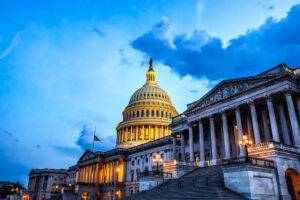

One of Western CPE’s most popular instructors, Jeff Sailor brings expertise and a singular flair to his coursework, designed to combat “boring CPE.” With 30 years accounting experience and more than 10 as an AICPA peer reviewer, he’s as knowledgeable as he is thoughtful about his presentation.
Read more about Jeff in our Instructor Spotlight and check out his CPE here.
Financial Reporting and the Virus
As most people are working together to ensure the safety of their family and those in their communities, I believe it’s safe to assume that financial statements disclosures are not high on your priority list. However, the potential impact of this current health situation is a perfect example of a potential subsequent event disclosure.
FASB Codification Section 855 requires management to assess the impact of events which have happened after the financial statement date but prior to the financial statement issuance. The purpose of this assessment and potential disclosure is to prevent the financial statements from being misleading.
For this purpose, as a general rule, most of us consider issues such as subsequent plant closings, labor strikes, lawsuits and such, which have very close ties to financial performance. However, consider the impact that this virus may have already had on some of your clients’ financial performance. Personally, for my clients, that impact ranges from negligible to severe depending on the nature of each client’s business.
So, what is our responsibility as providers of financial statements? First, management must assess the situation in proper context. Next, they must determine if there has been an impact on the entity’s financial situation. Lastly, they must disclose the nature of the subsequent event and an estimate of the financial effect or a statement that an estimate cannot be made. In most cases this will be simple statement about the virus and the potential impact in basic terms.
In the worst-case scenario, this could even lead to a going concern disclosure. Consider the impact of a small restaurant being closed for two months. Could they adequately mitigate the cash flows to reopen when the crisis is over? From the perspective of the reporting practitioner, there is a responsibility to consider the adequacy of disclosures, regardless of the level of assertion or the framework of accounting. Granted, that requirement is minimal for a preparation or a compilation, but consideration will always be prudent. I believe the best course of action would be to err toward conservatism. If your assessment indicates that there could be some impact, then go ahead and make a simple disclosure. In all cases, be sure to document in your workpapers that management has assessed the subsequent event and that you have considered their assessment before releasing the financial statements.
Best of luck during these trying times, and my hope is that we will all get through this very soon.
Webcast on the Coronavirus Tax Update
A 2 hour webcast titled The Coronavirus Tax Update is available to watch now!The webcast will include:
- The filing tax delay – news and update
- The stimulus rebate payments – news from the IRS and an update on client questions
- Other individual changes- charity, medical and student loans
- Coronavirus “disaster” loss reimbursements- §139
- Retirement plan changes
- Paycheck Protection Program loans
- Sick leave and Family leave details
- Employer Retention Payroll Tax Credit rules
- Employer payroll Tax Delay procedures
- Other business changes – NOLs,461(l), §163(j)- and more
- Two client letters are included to help you communicate with yoru clients
Learning objectives
- Be able to answer questions from slients on tthe stimulus rebate
- Understand the tax provisions of the CARES Act applying to individual clients.
- Understand the tax provisions of the CARES Act applying to business clients.
- Be able to provide clients with answers to their “how, when and how much questions” on the new SBA
Recent Stories




Senate Finance Committee Revisions to OBBBA


California Corner: FTB Experiencing Technical Issues
Next Up...
- |
- TaxByte
- |
- TaxByte
